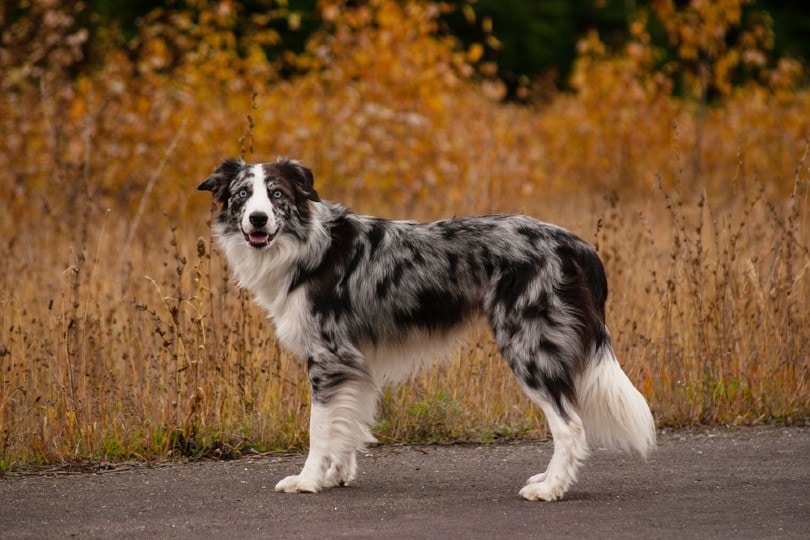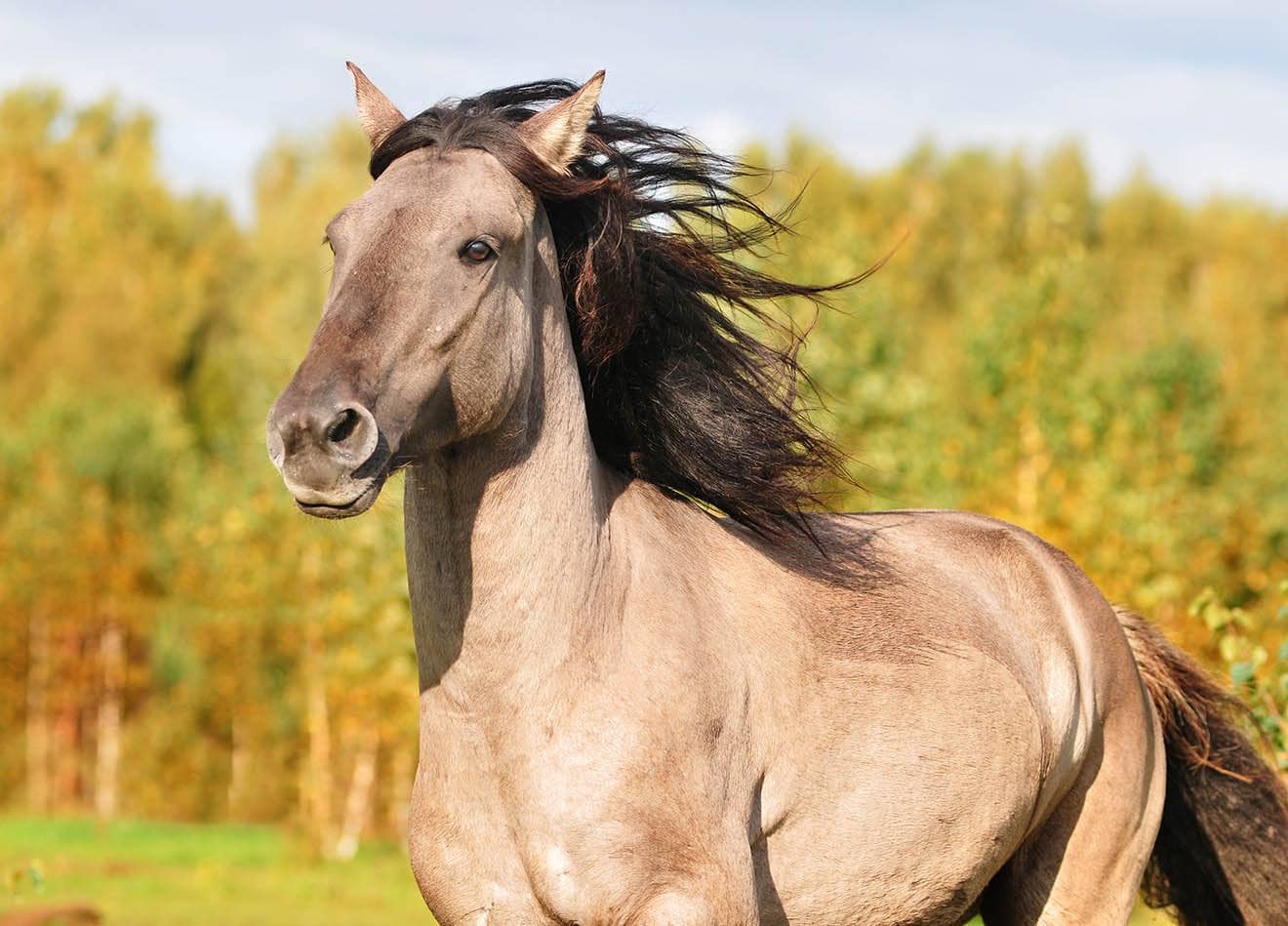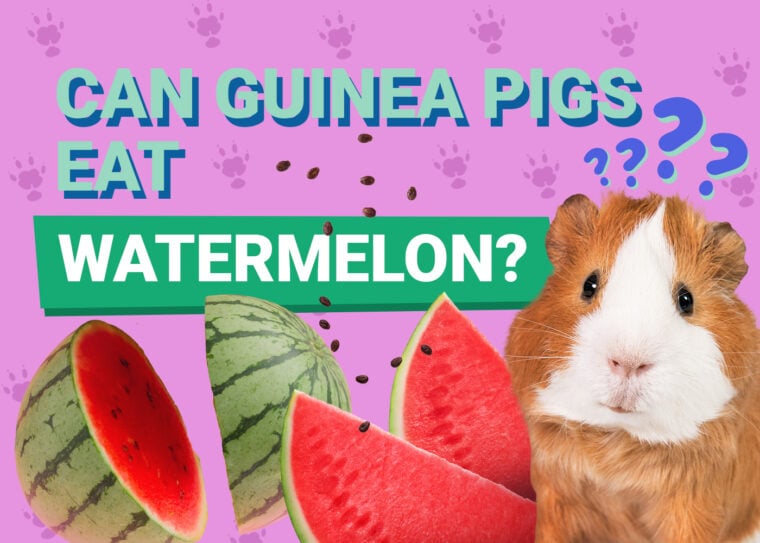
For humans, nothing is more satisfying on a sweltering summer day than biting into a juicy slice of watery-sweet watermelon. But can your little guinea pig friend have a taste of this refreshing treat? Yes, your piggy can eat watermelon, but only in moderation.
But is watermelon actually healthy for a guinea pig? And what about watermelon rind?
In this article, we’ll explore the possible health perks and risks of feeding your guinea pig watermelon, how and when to serve them this tasty fruit, and if they can also eat the rind.
 Can Guinea Pigs Eat Watermelon?
Can Guinea Pigs Eat Watermelon?
While a guinea pig’s diet should mainly consist of hay, fresh veggies, and guinea pig pellets, the occasional fruity treat will not harm them (provided that the fruit is safe for consumption). This includes watermelon.
Your guinea pig can eat watermelon, albeit in moderation. You can feed your pet a small cube of watermelon (approximately 1 inch wide) once or at most, twice every week. When offering watermelon to your guinea pig, it’s best to mix it with other fruits and vegetables rather than offering it on its own.
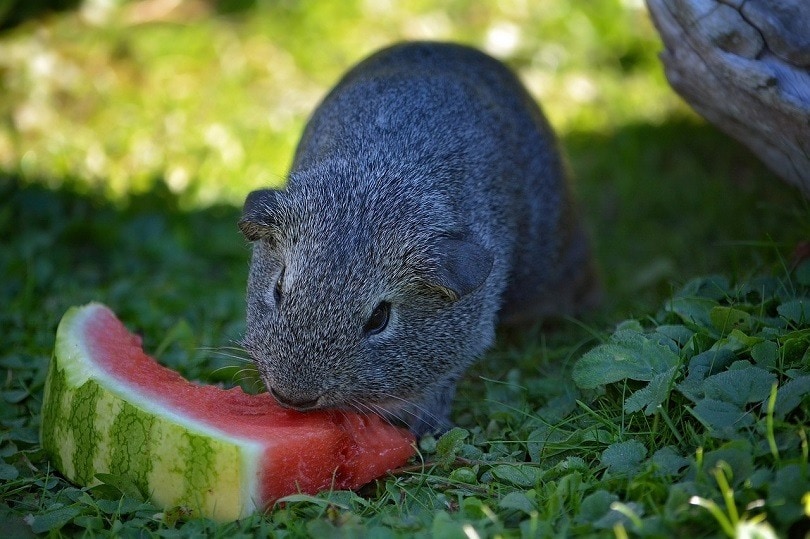
Is Watermelon Good for Guinea Pigs?
The key nutritional analysis of a watermelon yields the following information:
Source: https://fdc.nal.usda.gov/fdc-app.html#/food-details/167765/nutrients
Watermelon stays true to its name—it’s mostly water! When compared to some other fruits, its vitamin C rating isn’t stellar. For example, the following fruits offer much more vitamin C to your guinea pig. The rest of the nutritional breakdown of watermelon is mostly its carbohydrates (which it offers in the form of naturally occurring sugars).
Source: USDA
This comparison leaves us with the conclusion that watermelon is a good source of hydration, but when it comes to providing vitamin C to your guinea pig, it’s not a great fruit. Nonetheless, it can be safely incorporated into your guinea pig’s diet as an occasional treat.
Can Guinea Pigs Eat Watermelon Rind?
Yes, guinea pigs can eat watermelon rind. Preparing watermelon rind for your guinea pigs is simple. All you need to do is rinse it thoroughly and cut it up into bite-sized pieces.
Is Watermelon Bad for Guinea Pigs?
The vitamin C content of watermelon isn’t particularly great, but this doesn’t necessarily mean the fruit is bad for your guinea pig (they should be obtaining most of their vitamin C from their daily serving of guinea pig pellets and leafy vegetables). However, like with all fruits, there are instances where watermelon can be less than ideal for your guinea pig.
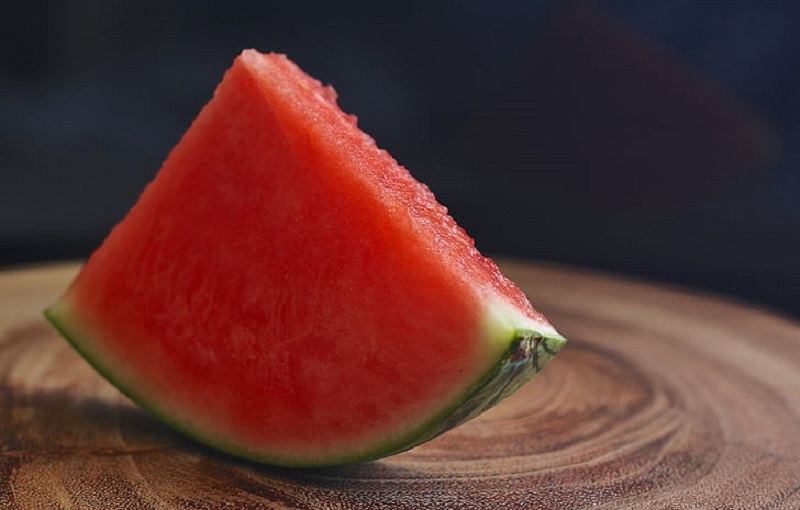
How Often Can Guinea Pigs Eat Watermelon?
Always feed your guinea pig any type of fruit, including watermelon, in moderation. You should only be serving them watermelon in small amounts once or at most, twice a week.
How Should I Feed My Guinea Pig Watermelon?
The best form of watermelon for your guinea pig is the raw fruit. Avoid candies that incorporate watermelon, freeze-dried pieces of watermelon, frozen watermelon, or any form of cooked watermelon.
Always be sure to thoroughly wash the watermelon before serving it to your guinea pig to remove any chemicals that might be present on the skin. Also, it is best to remove all of the seeds, as they can be choking hazards for your cavy.
Cut the watermelon flesh and grind into small cubes, about 1 inch in size. Discard any watermelon that your guinea pig doesn’t eat after a period of 4 hours at most. Never feed your guinea pig rotten watermelon.
Conclusion
Guinea pigs can eat watermelon and watermelon rind as an occasional treat. It is best to stick with fresh, seedless watermelon, fed in moderation. This luscious fruit can be a healthy and delicious weekly snack. If you’re in doubt about your guinea pig’s diet, you should consult with your veterinarian for more information.
- See Also: Can Guinea Pigs Eat Melon

 Can Guinea Pigs Eat Watermelon?
Can Guinea Pigs Eat Watermelon?
